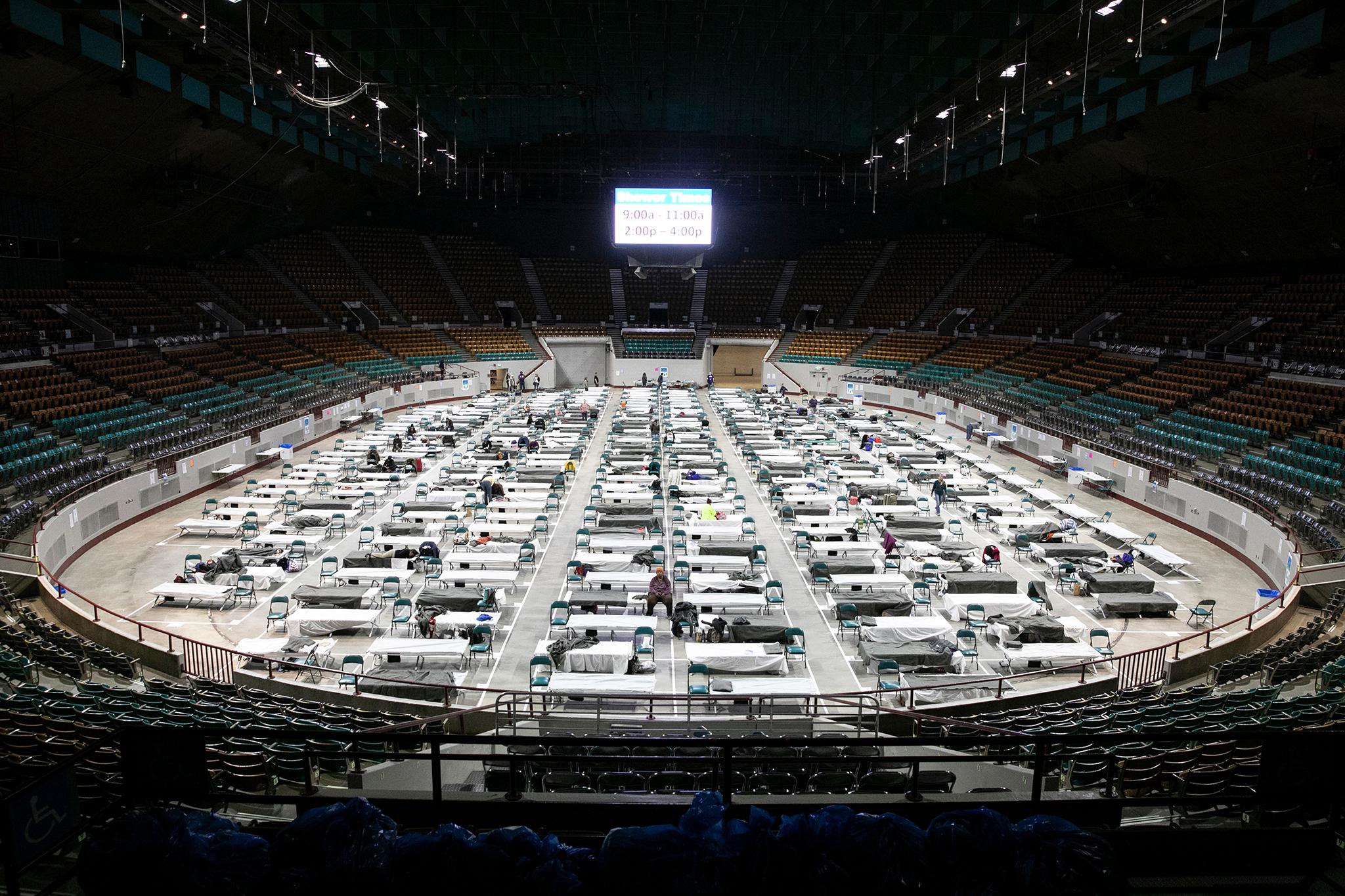For reasons that include limitations on testing supplies and staff, only people showing symptoms of a respiratory disease have been typically screened for the new coronavirus in Denver and elsewhere in the country.
But you don't have to show such symptoms as coughing or a fever to have and transmit the virus. The prospect is troubling because people experiencing homelessness can find it difficult to take such precautions as keeping their distance from others to stop the spread of the coronavirus.
This week, the Colorado Coalition for the Homeless, which has provided most of the coronavirus testing in Denver for people experiencing homelessness, conducted a pilot study on Monday at the St. Francis Center day shelter in Five Points. Over the course of the day, 52 men and women agreed to be screened for the coronavirus whether they showed symptoms or not. Of the 45 who showed no symptoms, 12, or about 26 percent, tested positive. Two of the seven people who exhibited symptoms tested positive. Similar studies elsewhere in the country have produced similar results.
"We know now we probably have asymptomatic people staying with not-positive people," Cathy Alderman, vice president of communications and public policy for the Colorado Coalition for the Homeless.
Those who tested positive and those who showed symptoms of respiratory illness during the St. Francis study were moved into some of the nearly 700 hotel rooms that have been secured in Denver for people experiencing homelessness who are affected by the coronavirus outbreak. Officials are trying to secure more respite rooms. The St. Francis study could help determine how many more are needed.
Alderman noted that schools and churches have been closed and large sporting events canceled since the coronavirus outbreak began.
"We stopped all of that to prevent the spread," she said, adding shelters are among the few places still open where people gather in large numbers.
Because they often have other health concerns and their immune systems can be weakened by the stress of living on the streets, people experiencing homelessness are considered at greater risk of suffering the worst effects of COVID-19.
"We've got to put a plan in place to prevent spread" among people experiencing homelessness, Alderman said.
She said more testing of people without symptoms is necessary, and that that would require more supplies, more staff, and more places for people experiencing homelessness who test positive to recover away from others. She said the coalition used the results of its study to bolster a request to the state sent Friday for help in all those areas.
Alderman said one suggestion for housing people experiencing homelessness who test positive is the Colorado Convention Center. The convention center has been designated as a field hospital to accommodate any surge in COVID cases. It was initially scheduled to have 2,000 beds, but that has been reduced to 600 because updated modeling has lowered expectations of the number of patients who might need hospitalization.
Moving people who are carrying the virus but not showing symptoms elsewhere would make shelters safer for both staff and residents. As of Tuesday, 13 people working for the Denver Rescue Mission, which operates a large men's shelter at the National Western Complex, have tested positive for COVID-19.
The National Western shelter and one for women at the nearby Coliseum, both opened last month, have offered more space than regular shelters for social distancing. Older shelters in town have been able to improve social distancing because the new shelters and the hotel rooms have allowed them to reduce the number of people they serve. But shelters remain less than ideal places for people who are infectious.
People are screened before entering Denver's shelters. Those with symptoms of respiratory illness are diverted to be tested and to stay at the hotel rooms rented by the city.













